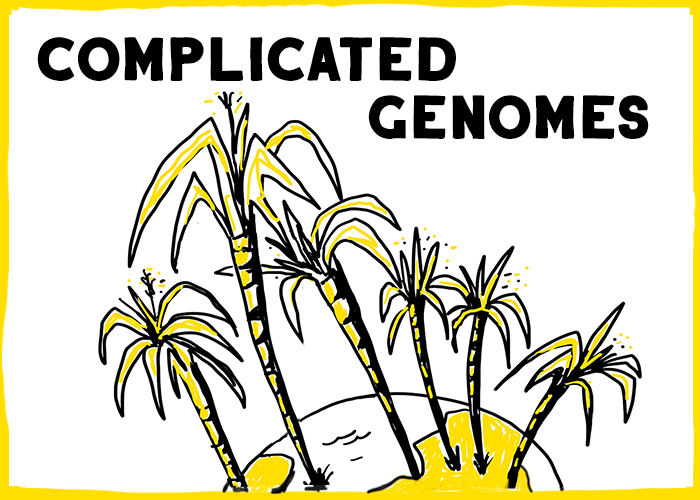HUNTSVILLE, Ala. – Although it affects less than 1 percent of the global population, schizophrenia exacts a large toll in terms of expense and human suffering. A new study from researchers at the HudsonAlpha Institute for Biotechnology, with colleagues from Columbia University in New York and the University of Pretoria in South Africa, indicate non-familial genetic mutations may account for about half of schizophrenia cases.
“This study has emphasized how important personal genome sequencing is in complex diseases such as schizophrenia,” said Shawn Levy, Ph.D., faculty investigator at the HudsonAlpha Institute. “By sequencing major portions of the genome, this study has found that new mutations, separate from inherited mutations, may significantly contribute to the occurrence of schizophrenia.”
Levy and fellow scientists at HudsonAlpha led sequencing efforts and contributed to the analysis of the study data.
The team’s discoveries emerged from exome sequencing in schizophrenia patients. The exome is the part of the genome that is transcribed into messenger nucleic acids, for use in cellular processes. Patients in the study had the sporadic form of the disease, meaning that they did not have close relatives with the disorder. When the exomes of sporadic schizophrenia patients were compared to the exomes of their own parents, about half of the patients were shown to have new mutations in important genes.
“The study greatly expands the number of genetic mutations linked to schizophrenia,” said Levy. Results also help to explain how schizophrenia and related disorders are relatively frequent in the population. Furthermore, comparison of inherited to new mutations shows that the new mutations are more often damaging to important proteins in the cell, potentially explaining why they lead to schizophrenia.
“The contribution of novel, non-inherited mutations to disease also emphasizes how important genome sequencing will be in diagnosing and treating disease,” added Levy.
Levy and colleagues at HudsonAlpha have been actively developing resources such as the institute’s Genomics Services Laboratory. In studies like this one, the GSL provides complex genomic technologies and support to researchers and clinicians from around the world.
The study is published online by the journal Nature Genetics, at this link.
Media Contact: Beth Pugh
bpugh@hudsonalpha.org
256-327-0443
About HudsonAlpha: HudsonAlpha Institute for Biotechnology is a nonprofit institute dedicated to innovating in the field of genomic technology and sciences across a spectrum of biological problems. Its mission is three-fold: sparking scientific discoveries that can impact human health and well-being; fostering biotech entrepreneurship; and encouraging the creation of a genomics-literate workforce and society. The HudsonAlpha biotechnology campus consists of 152 acres nestled within Cummings Research Park, the nation’s second largest research park. Designed to be a hothouse of biotech economic development, HudsonAlpha’s state-of-the-art facilities co-locate scientific researchers with entrepreneurs and educators. The relationships formed on the HudsonAlpha campus allow serendipity to yield results in medicine and agriculture. Since opening in 2008, HudsonAlpha, under the leadership of Dr. Richard M. Myers, a key collaborator on the Human Genome Project, has built a name for itself in genetics and genomics research and biotech education, and boasts 26 biotech companies on campus.

